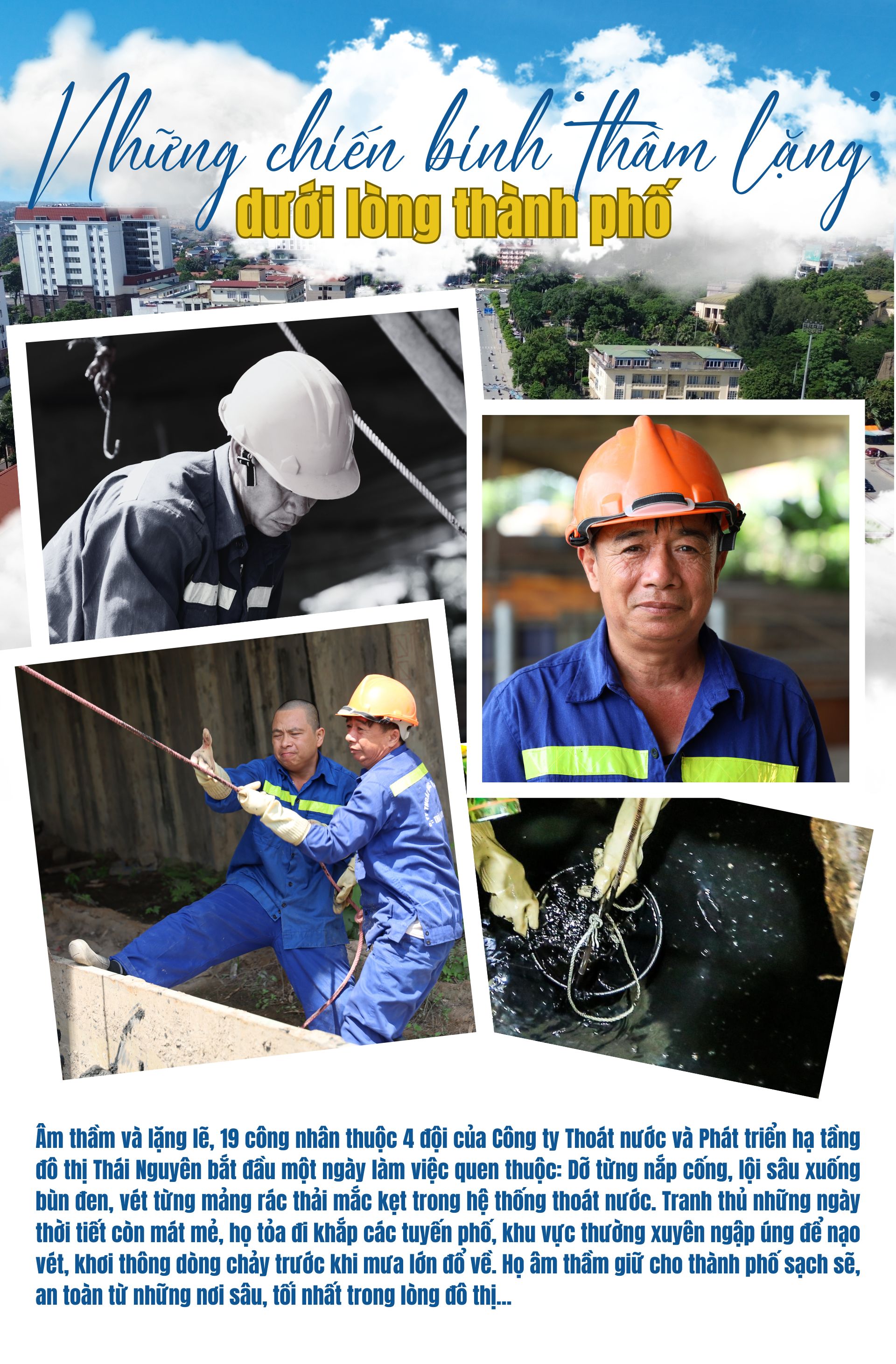 |
 |
The sound of shovels hitting rocks, the rumble of water pumps, above are the hurried streams of vehicles, below are the people working hard, immersed in the darkness, in the smell of mud and garbage, just to keep the water behind them clear.
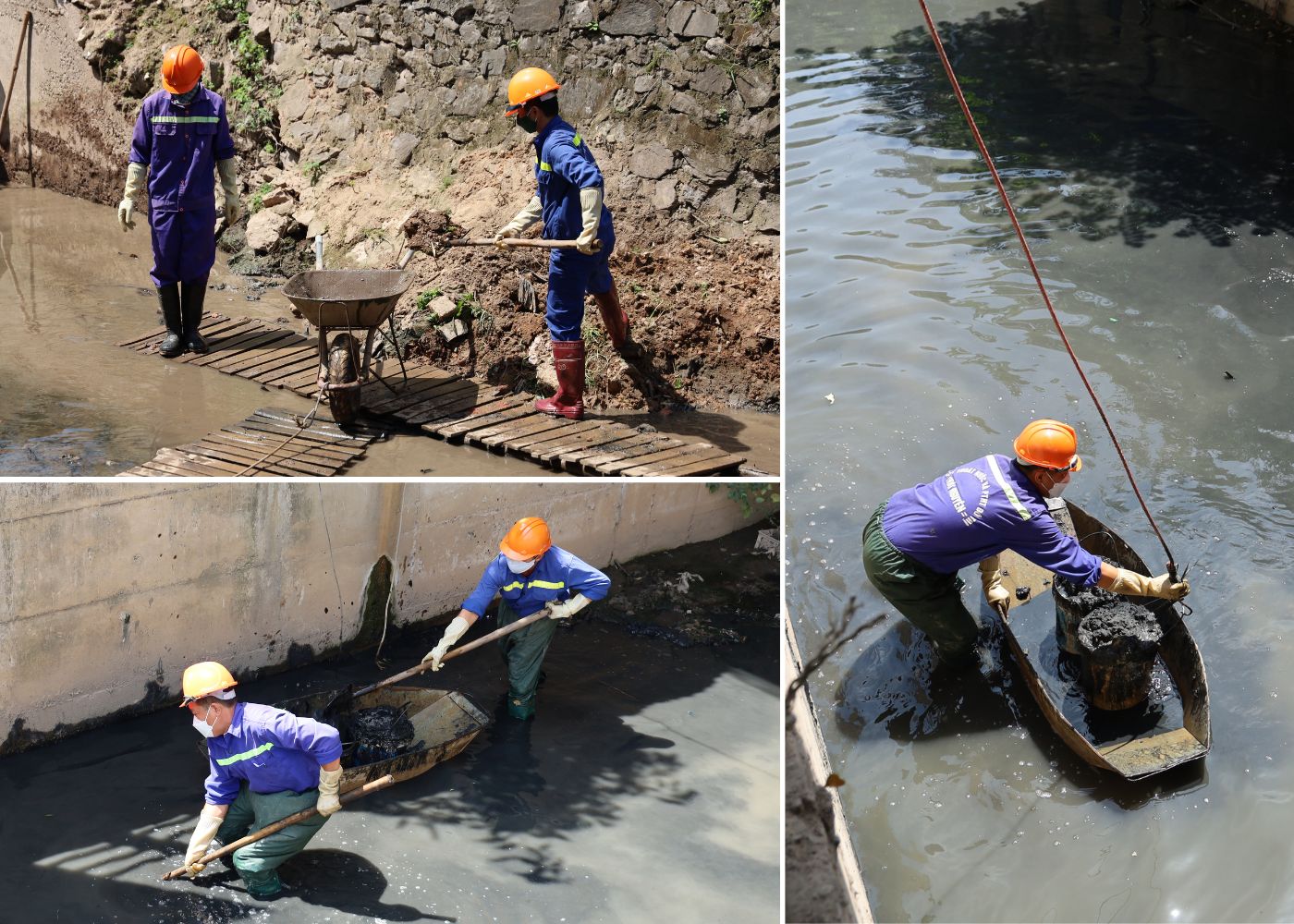 |
 |
The work schedule of these workers is regular every day: Morning from 7:00 to 11:30, afternoon from 13:00 to 17:00, sometimes up to 19:00 if there is heavy flooding or urgent need for dredging.
During the rainy season, they have to work 24/7, especially at places that are often flooded such as the foot of the Dan overpass, Tuc Duyen intersection, Minh Cau street, the area around Xuong Rong lake... Whenever it rains heavily, they are there to collect trash, clear manholes, and ensure that water drains quickly and does not overflow onto the road.
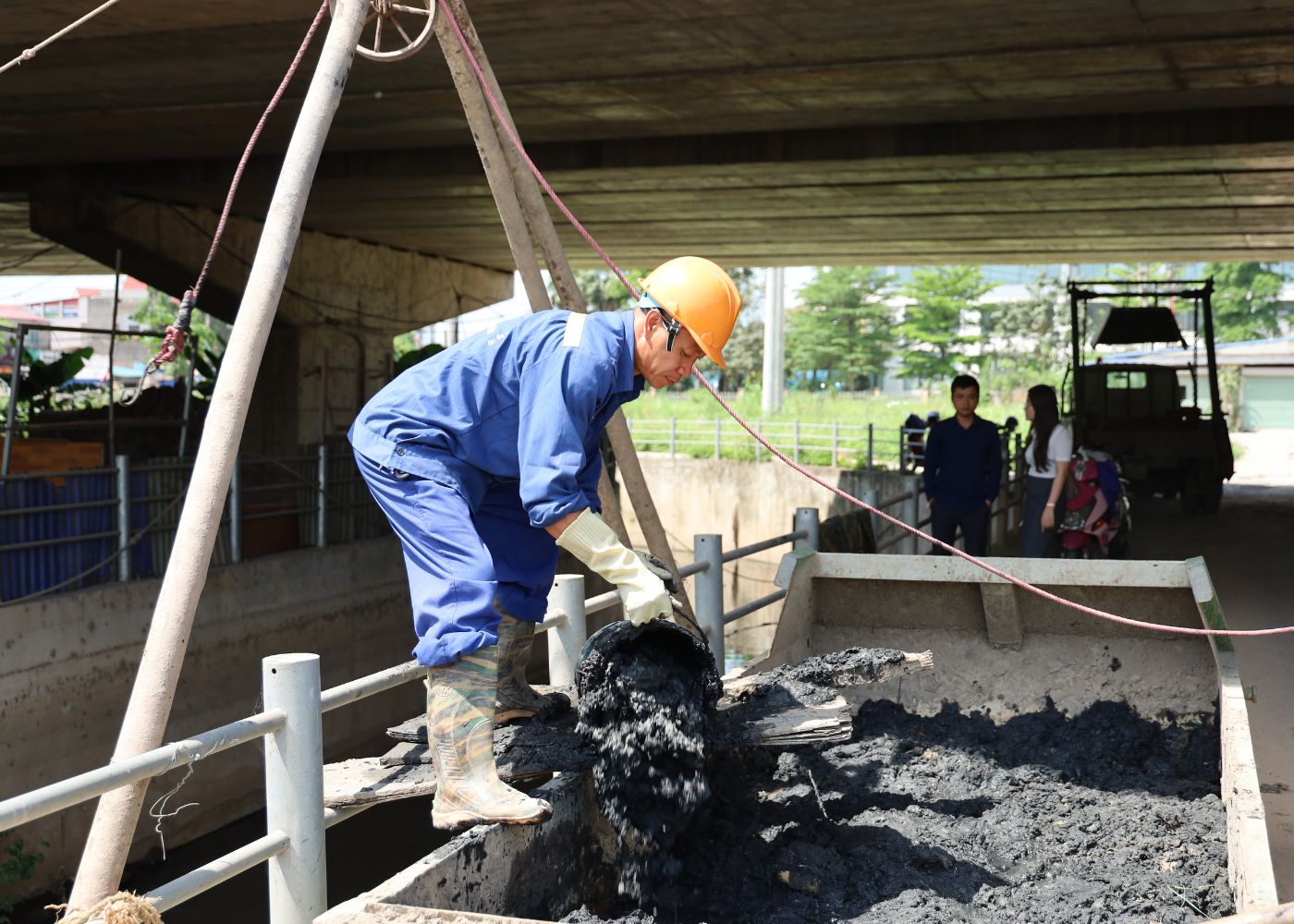 |
The job is specific, with year-round exposure to mud, waste, and toxic gases, so each worker receives a separate hazard allowance. But above all, it is the professional pride of the people who silently keep the city clean and safe.
Quietly, hard-working and facing countless risks, they still persistently stick with the profession - not only for a living, but also because of a clear awareness of the value of the work they are doing. The entire team is made up of middle-aged people, with tanned faces and calloused hands. Some have been in this profession for over 20 years.
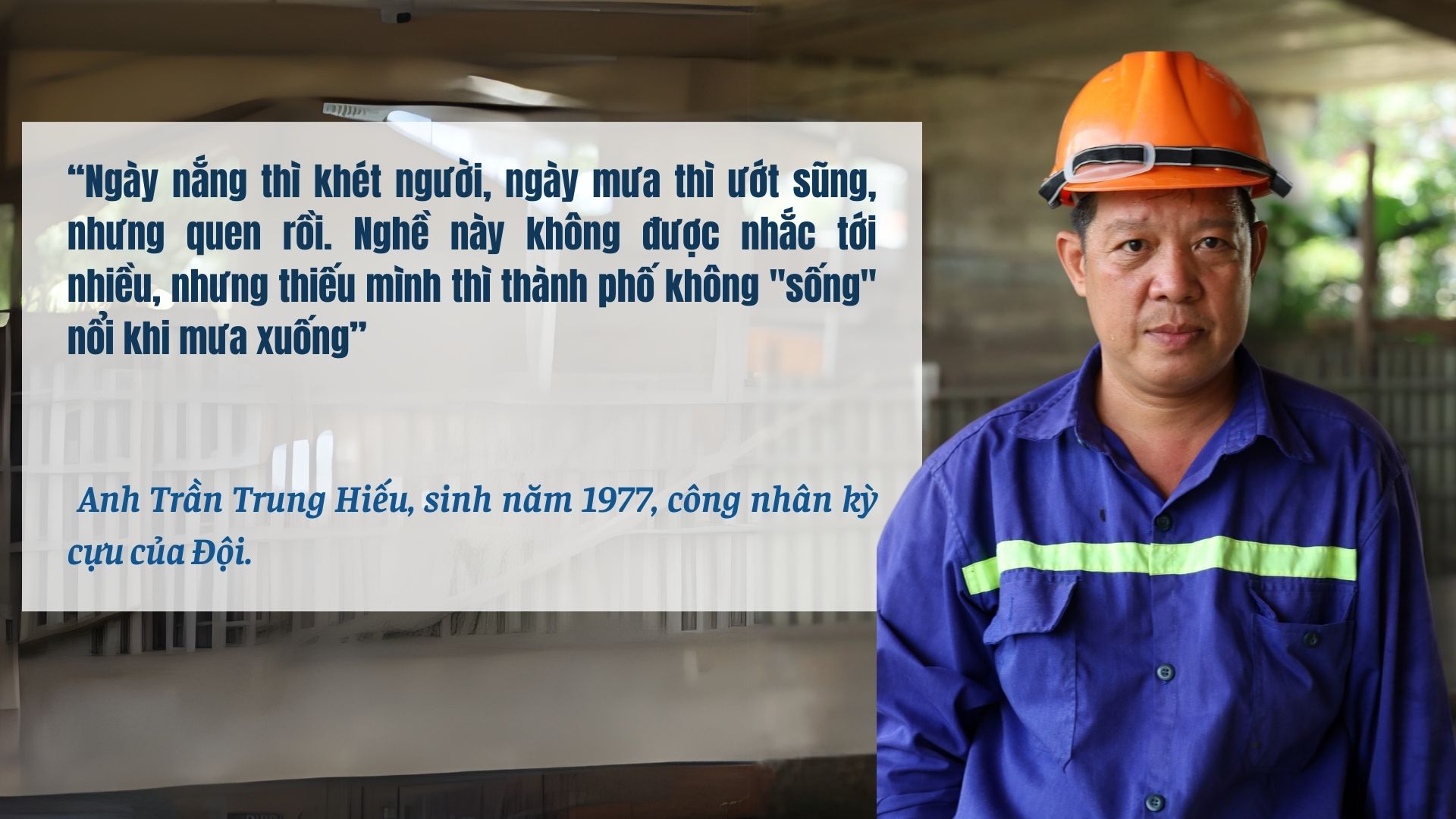 |
For nearly 20 years in the profession, for Mr. Hieu, underground sewers, open ditches, under bridges... have become a familiar part of life. "Crawling from one sewer to another, dark, smelly, cramped... but we are all used to it. Every time we finish a line and get the water flowing, we are very happy," Mr. Hieu said, smiling gently but the fatigue is clearly visible on his sunburned face.
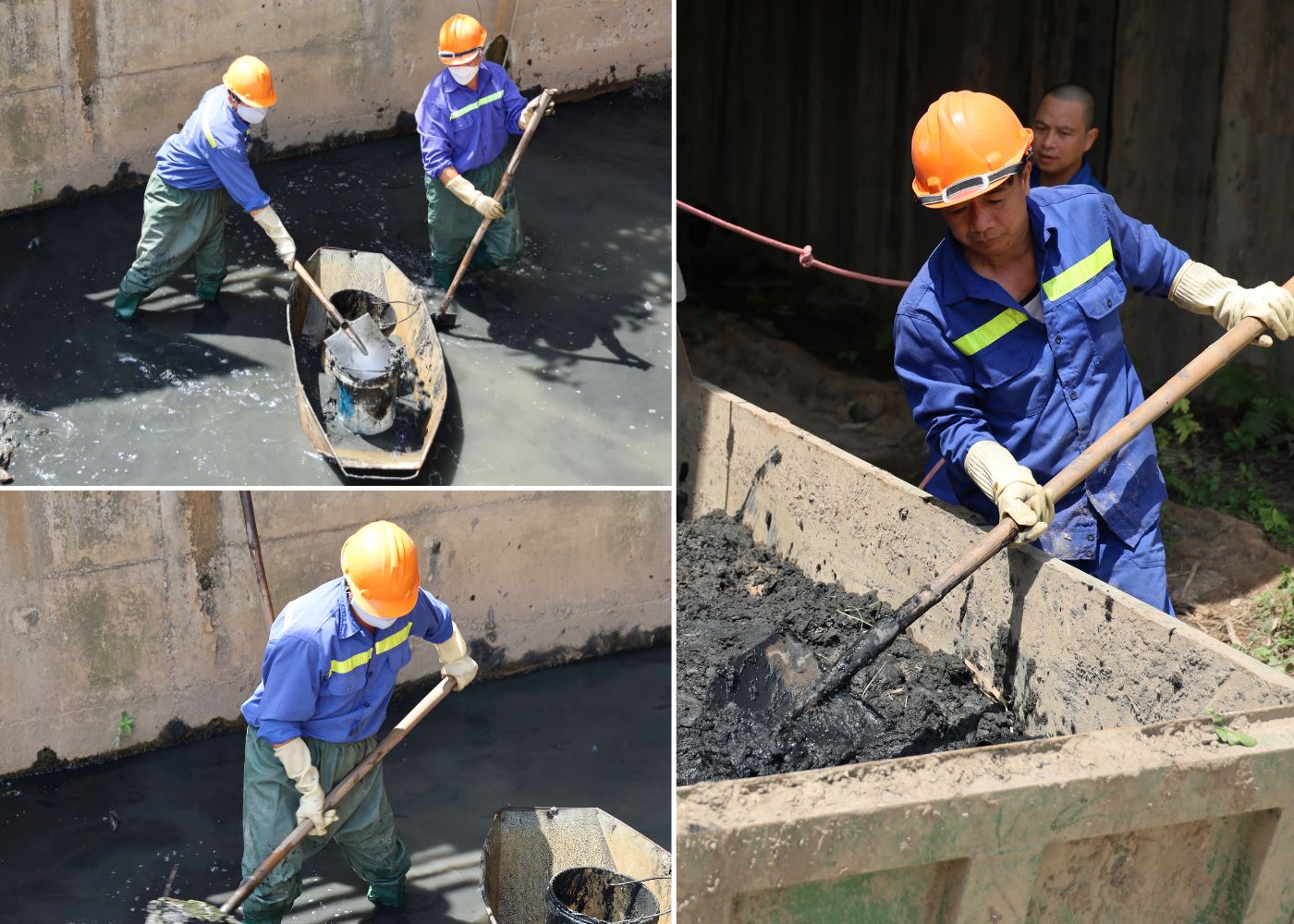 |
The specific job requires them to start the day early. In the morning, the truck carrying the equipment places the trash bins, the brothers go down to check the sewer mouth, and clean up each bucket of waste. In some sections where the water flow is weak, they have to crawl deep inside, sometimes crawling several meters down the sewer. Many times, Mr. Hieu and his teammates have had to deal with untreated domestic waste, discharged directly into the drainage system by households. The stench is so strong that even after bathing, the smell still lingers on the body, and the clothes never get rid of the smell.
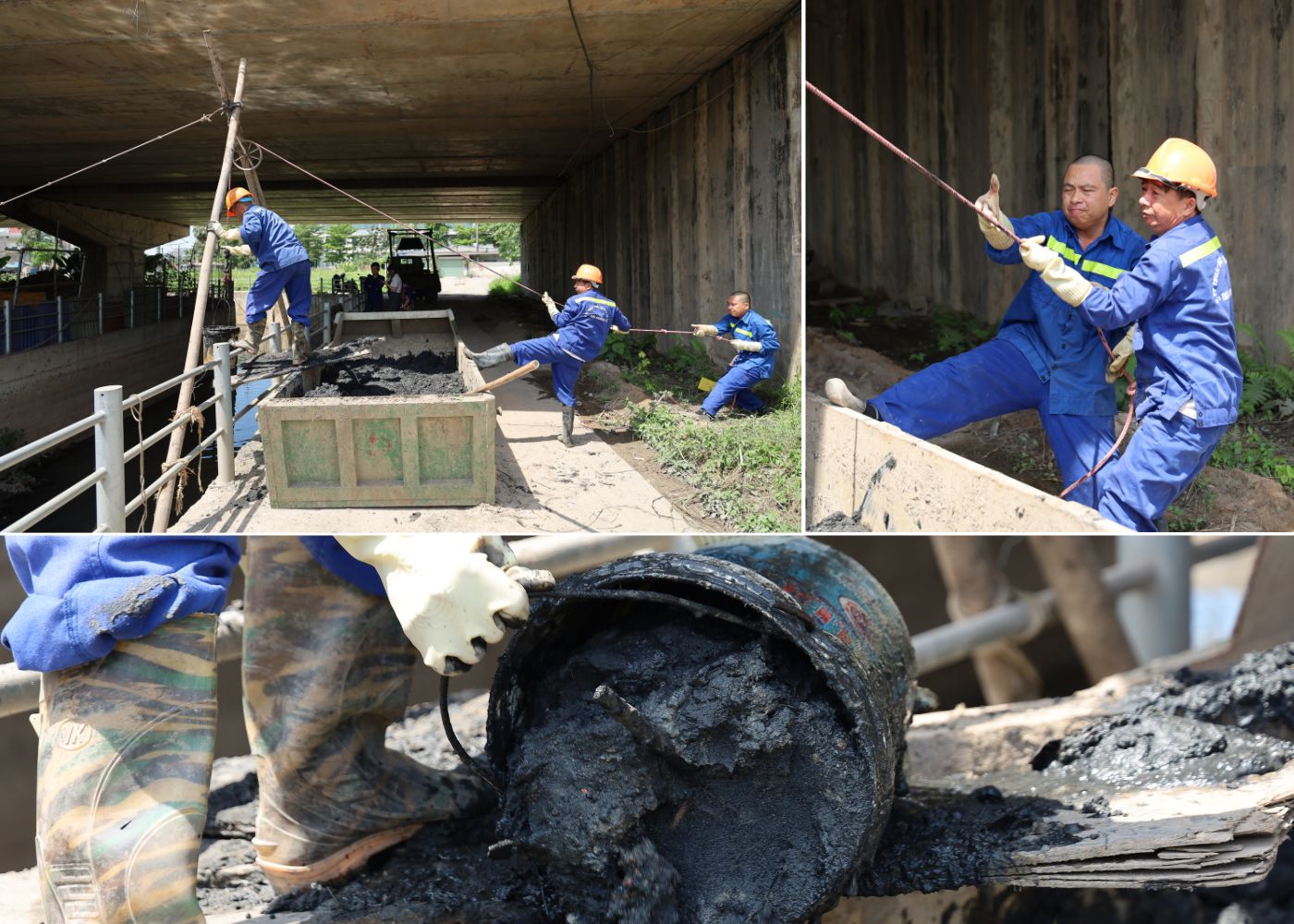 |
Despite the hardship, Mr. Hieu still chooses to stick with the job. For him, it is a responsibility, an indispensable job for the city. During short breaks after work, the brothers in the team sit together, drink water, chat, and encourage each other to overcome daily hardships.
 |
Mr. Le Duy Sang, born in 1970, from Phu Binh district, quietly travels more than 30km from home to the city to work every day and then returns home late in the afternoon. Having worked for the Thai Nguyen Urban Infrastructure Development and Drainage Company for 24 years, he is considered a "big tree" in the team.
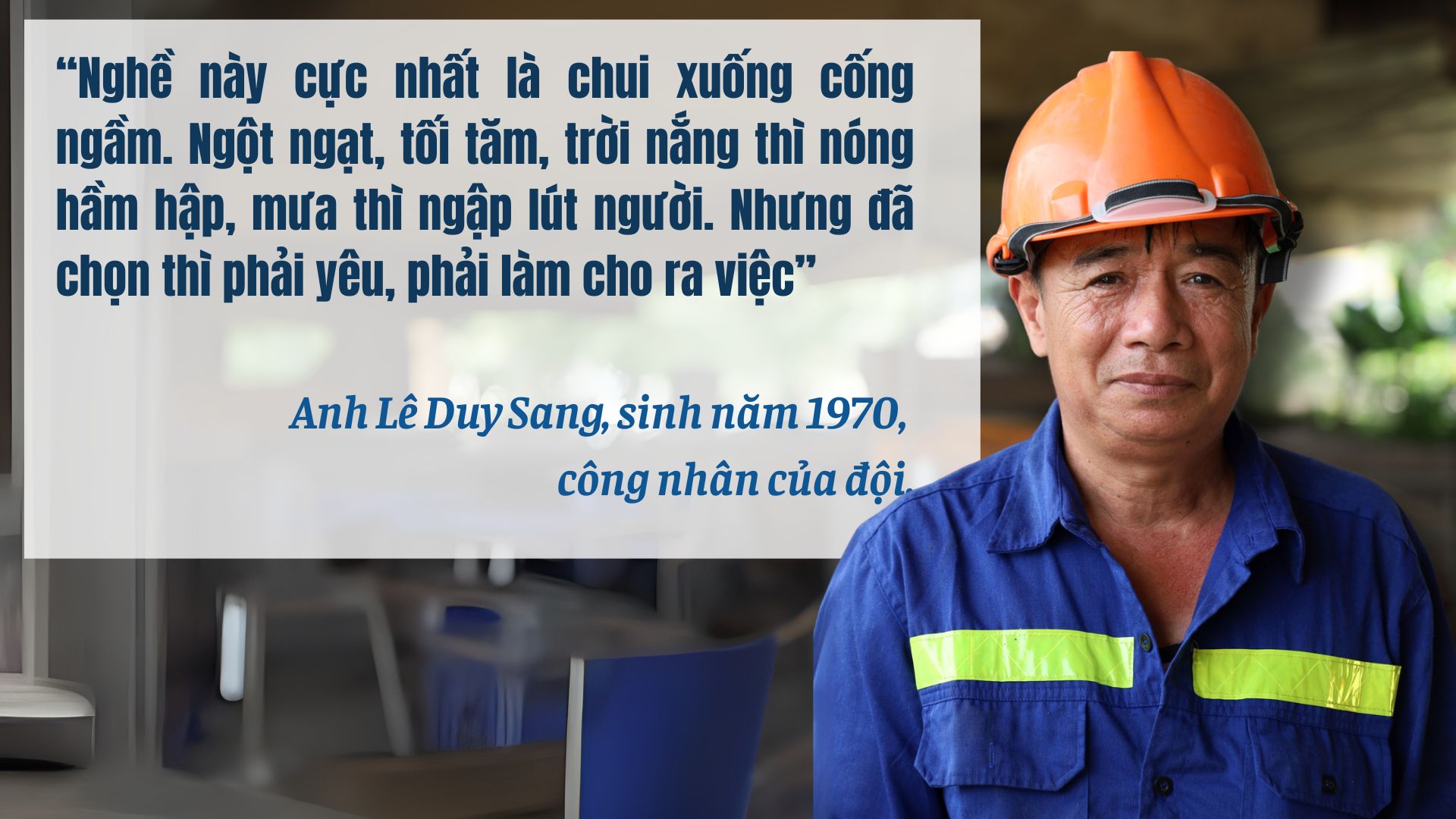 |
Family is the biggest support for a man who has spent nearly half his life in the city. His wife is a primary school teacher, and his children are all grown up. "My wife and children understand and love my job, so I have to try harder. The company also cares about our lives, has a toxic regime, and timely support, so we always stick with the job," he shared.
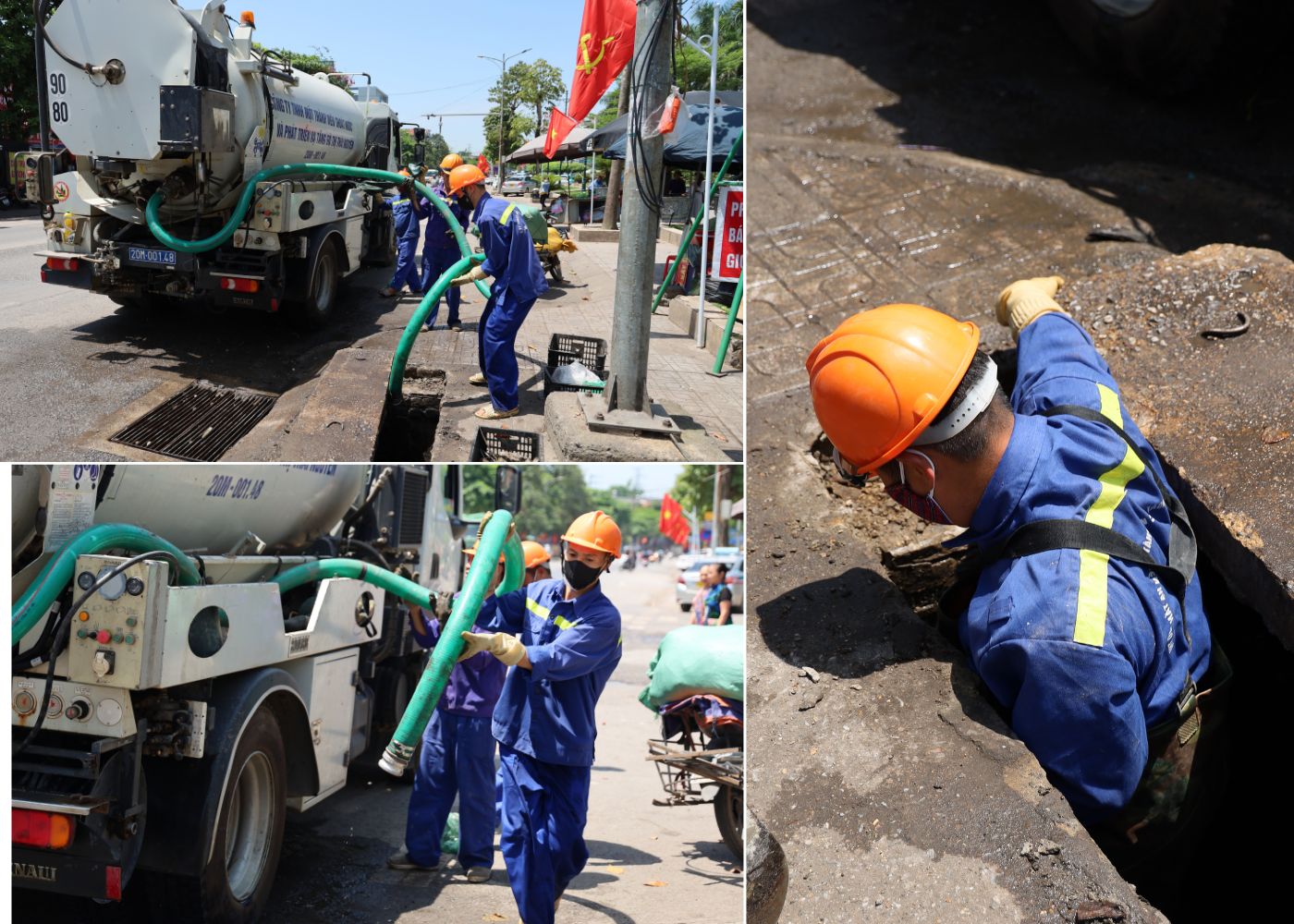 |
There are days when after work, the smell of garbage and sewage seeps into my body and clothes, and even after I shower, it still lingers. “Sometimes when I go home, I feel embarrassed to stop by a coffee shop, people look at me like… discrimination. So when I get home from work, I go straight home…” Having said that, Mr. Sang pulled up his sleeves, preparing for the next shift on the hot street.
 |
Compared to underground sewers, making open ditches is considered the “lighter” part. The open ditches, stagnant water, floating household waste… are collected by workers in boats containing mud barrels, then hauled to shore in batches over a temporary wooden bridge they built themselves. The stench is strong, flies and mosquitoes swarm, but it is still easier to breathe than having to crawl into the underground sewer system meters deep below ground.
The most difficult part is still the underground sewers, with diameters ranging from 300, 800, 1,000 to 1,200mm. When you step down, the air is thick and the smell is so strong that it is suffocating. In the hot summer sun, just standing a few meters away from the sewer is uncomfortable, let alone crawling inside.
The sewer dredging team consists of 19 people, divided into 4 groups, taking turns “rolling” through the sewers under the street every day. To ensure safety, each person is only allowed to work in the sewers for about 30 minutes, after which they must be replaced continuously.
The manholes are narrow, people are exhausted, eyes sting, breathing is difficult, limbs are weak. Some workers have itchy skin, skin diseases, blisters due to long-term contact with polluted water, medicine can only help reduce but not cure. Not only gas, toxic fumes from manholes, underground sewers, the danger from sharp objects, also make workers have to struggle to cope.
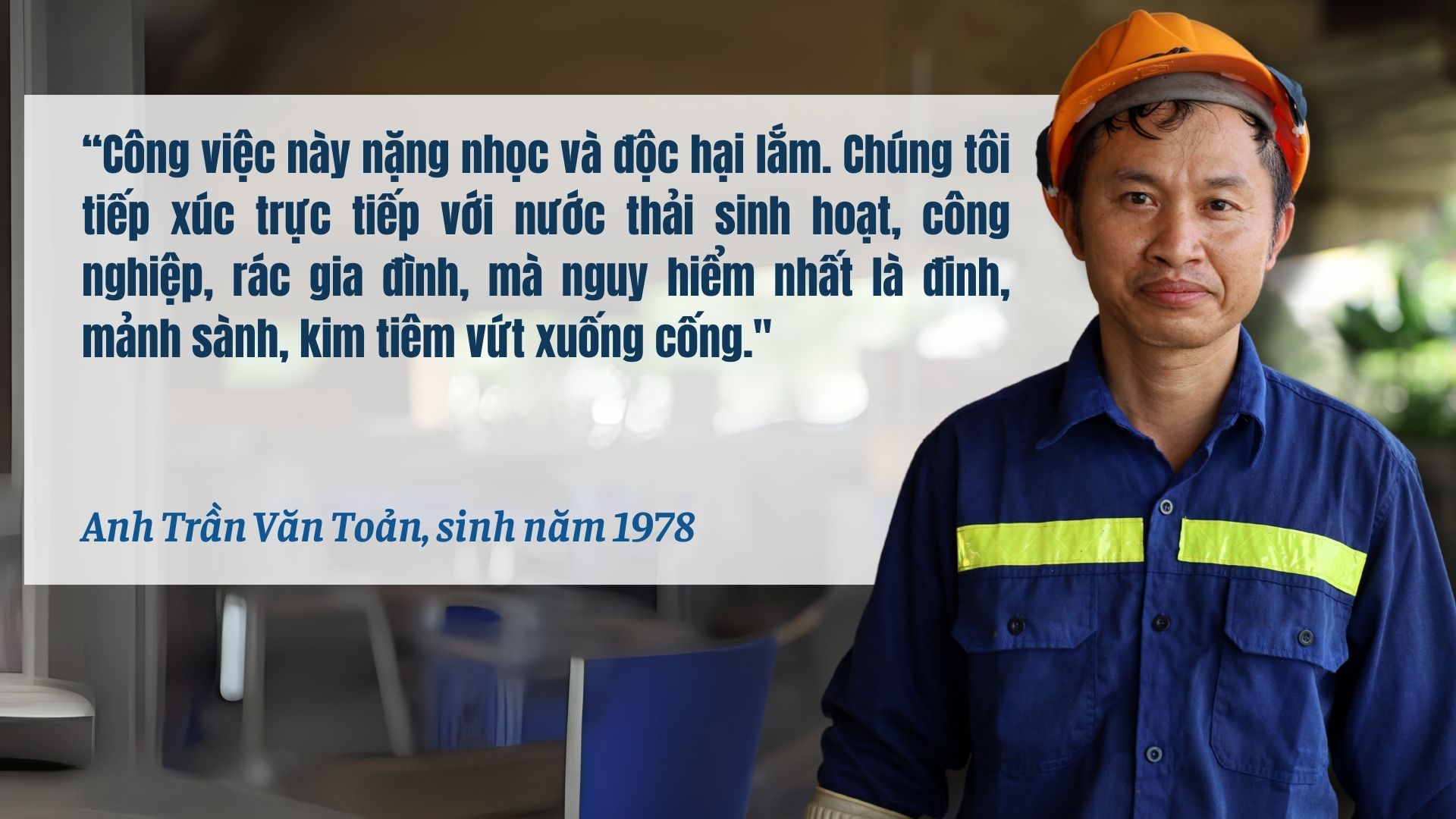 |
"Last year, while working in the Bac Son area, a piece of wooden formwork nail pierced the sole of my foot. I had to get a tetanus shot and miss two days," said Tran Van Toan, his voice still trembling slightly.
 |
Hard work and hardship are nothing compared to the negative views of society. Mr. Toan shared: I finished the work, the streets were clean, the canals were clear... but some people still considered me inferior, holding their noses when passing by, feeling disgusted. However, I still persevered with the work, trying to stay calm and hopeful. I hope everyone will be more aware, do not litter indiscriminately in canals, streams, and sewers. Dispose of glass bottles, plastic bags, and trash in the right places, because a clean city is not just the work of workers. It requires the cooperation of the whole community.
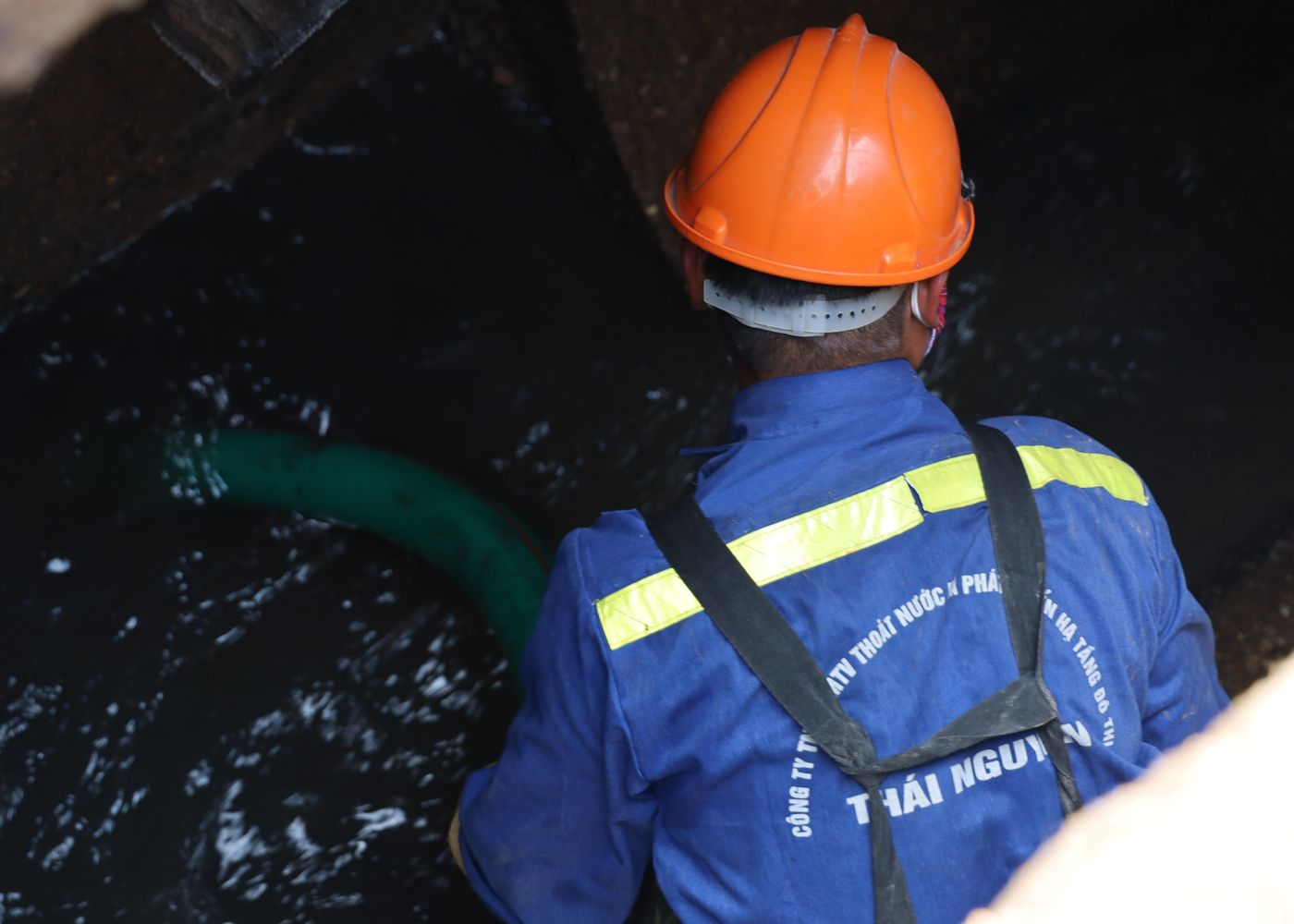 |
They don’t wear bright uniforms or have fancy offices. Their work starts in the middle of the street, in the darkest, most stuffy and dirty places. Yet, they are the ones who keep the city clean, smooth and safe. Every meter of sewer that is cleared means another flow is returned to the right path, another part of the street is protected from flooding.
Quietly, hard-working and facing countless risks, they still persistently stick with their profession, not only for a living, but also because of a clear awareness of the value of the work they are doing. And perhaps, what they need most is not praise, but respect, sharing and a conscious community working together to preserve the living environment.
 |
Source: https://baothainguyen.vn/multimedia/emagazine/202505/nhung-chien-binh-tham-lang-duoi-long-thanh-pho-2081674/


![[Photo] Prime Minister Pham Minh Chinh receives leaders of Excelerate Energy Group](https://vphoto.vietnam.vn/thumb/1200x675/vietnam/resource/IMAGE/2025/5/29/c1fbe073230443d0a5aae0bc264d07fe)



![[Photo] Prime Minister Pham Minh Chinh attends the event "Digital transformation of the banking industry by 2025"](https://vphoto.vietnam.vn/thumb/1200x675/vietnam/resource/IMAGE/2025/5/29/0e34cc7261d74e26b7f87cadff763eae)








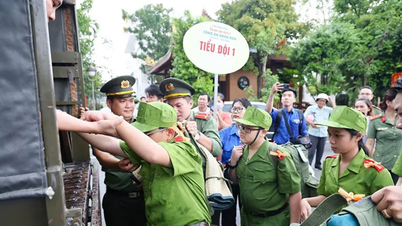





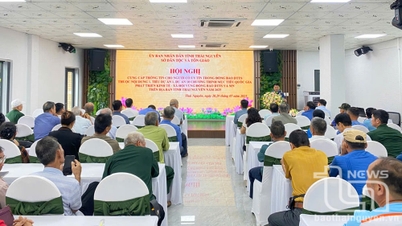
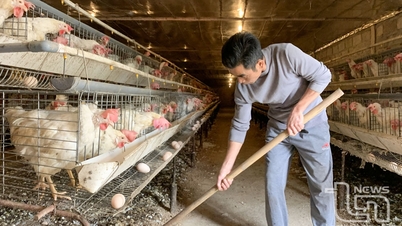

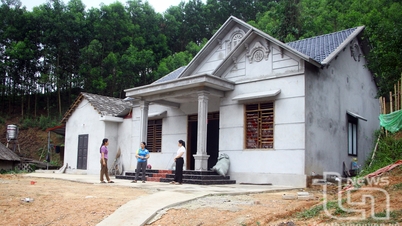

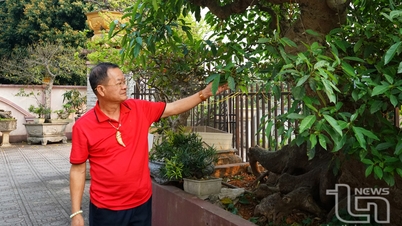


































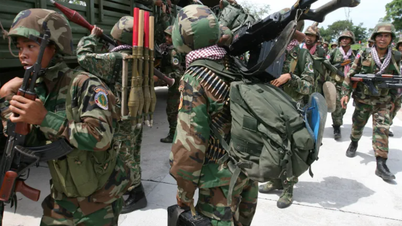






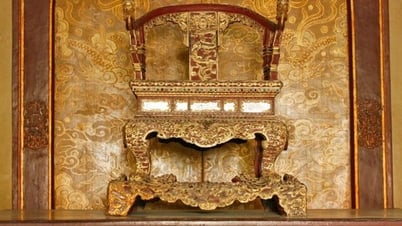




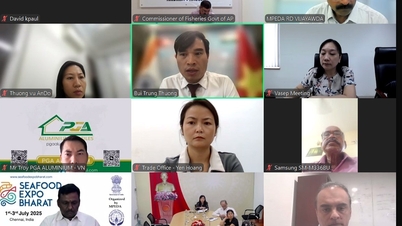
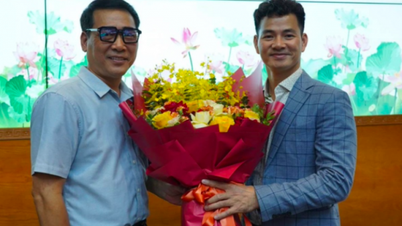











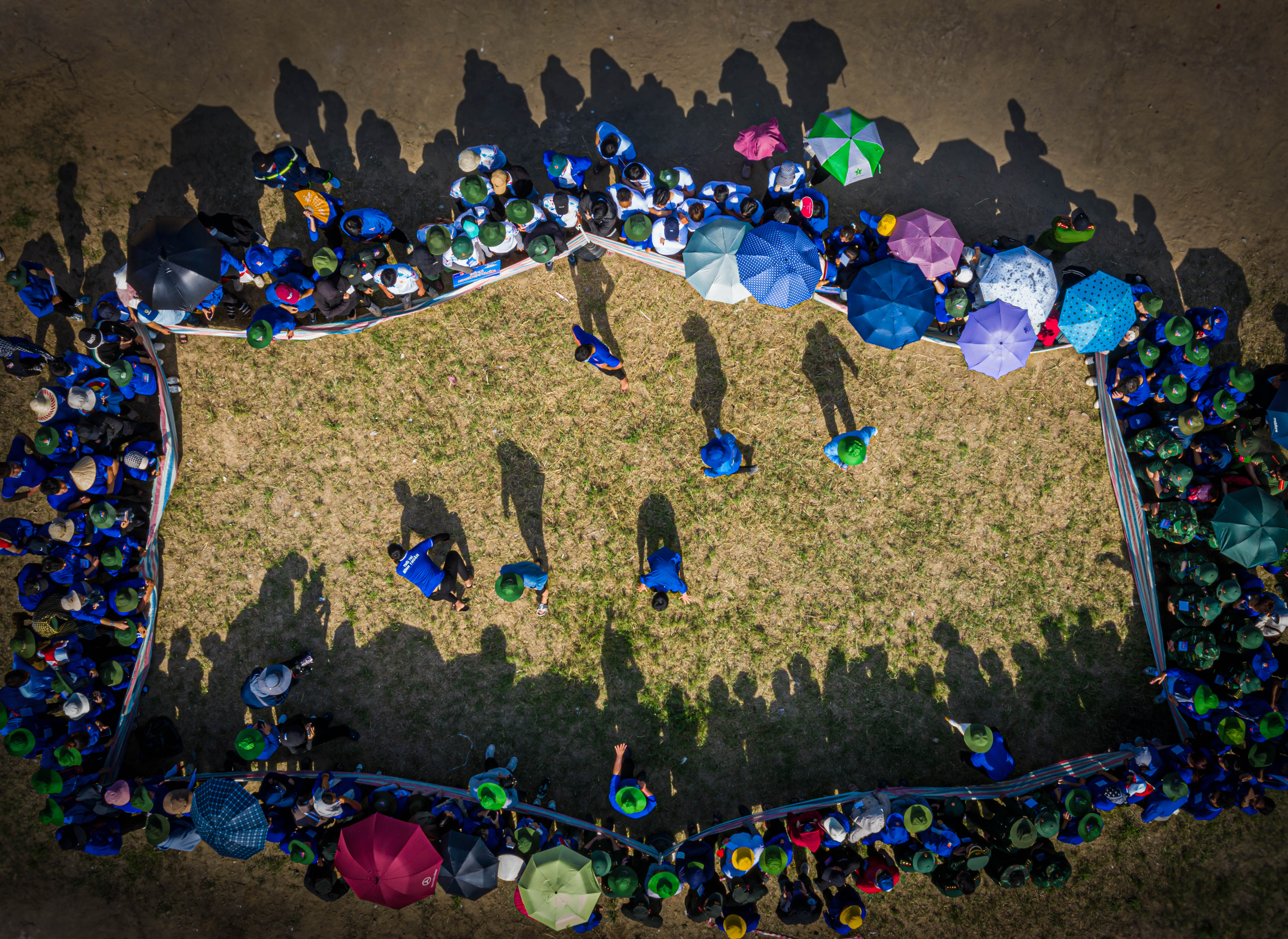



Comment (0)